- Home
- L. Ron Hubbard
Final Blackout: A Futuristic War Novel Page 2
Final Blackout: A Futuristic War Novel Read online
Page 2
Certainly all this was heresy enough in that quiet world of 1939, and since that time, it is only fair to state, the author has served here and there and has gained enough experience to see the error of his judgment.
Everything, it can be said with Pangloss, so far has been for the best in this best of all possible worlds.
There have been two or three stories modeled on FINAL BLACKOUT. I am flattered. It is just a story. And as the past few years proved, it cannot possibly happen.
L.RON HUBBARD Hollywood, 1948
The Lieutenant
He was born in an air-raid shelter-and his first wail was drowned by the shriek of bombs, the thunder of falling Walls and the coughing chatter of machine guns raking the sky.
He was taught in a countryside where A was for Antiaircraft and V was for Victory. He knew that Vickers Wellington bombers had flown non-stop clear to China. But nobody thought to tell him about a man who had sailed a carrack as far in the opposite direction-a chap called Columbus.
War-shattered officers had taught him the arts of battle on the relief maps of Rugby. Limping sergeants had made him expert with rifle and pistol, light and heavy artillery. And although he could not conjugate a single Latin verb, he was graduated as wholly educated at fourteen and commissioned the same year.
His father was killed on the Mole at Kiel. His uncle rode a flamer in at Hamburg. His mother, long ago, had died of grief and starvation in the wreckage which had been London.
When he was eighteen he had been sent to the front as a subaltern. At twenty-three he was commanding a brigade.
In short, his career was not unlike that of any other high-born English lad born after the beginning of that conflict which is sometimes known as the War of Books-or the War of Creeds, or the War Which Ended War or World Wars two, three, four and five. Like any other, with the exception that he lived through it.
There is little accounting for the reason he lived so long, and, having lived, moved up to take the spotlight on the Continental stage for a few seconds out of time. But there is never any accounting for such things.
When officers and men, sick with the hell of it, walked out to find a bullet that would end an unlivable life, he shrugged and carried on. When his messmates went screaming mad from illness and revulsion, he gave them that for which they begged, sheathed his pistol and took over the fragments of their commands. When, outfits mutinied and shot their officers in the back, he squared his own and, faced front, carried on.
He had seen ninety-three thousand replacements come into his division before he had been a year on the Continent. And he had seen almost as many files voided over again.
He was a soldier and his trade was death, and he had seen too much to be greatly impressed with anything. Outwardly he was much like half a million others of his rank; inwardly there was a difference. He had found out, while commanding ack-acks in England, that nerves are more deadly than bullets, and so he had early denied the existence of his own, substituting a careless cheerfulness which went strangely with the somber gloom which overhung the graveyard of Europe. If he had nerves, he kept them to himself. And what battles he fought within himself to keep them down must forever go unsung.
Before he had been a year on the Continent, the dread soldier's sickness-that very learned and scientific result of bacteriological warfare, the climax of years of mutating germs unto final, incurable diseases-had caused a quarantine to be placed on all English troops serving across the Channel, just as America, nine years before, had completely stopped all communication across the Atlantic, shortly after her abortive atom war had boomeranged. Hence, he had not been able to return to England.
If he longed for his own land, shell-blasted though it might be, he never showed it. Impassively he had listened each time to the tidings of seven separate revolutions which had begun with the assassination of the king, a crime which had been succeeded by every known kind of political buffoonery culminating in Communism (for at least that is what they called this ideology, though Marx would have disowned it. And the late, unlamented Stalin would have gibbered incoherently at the heresy of its tenets). And he saw only mirth in the fact that, whereas the crimson banner flew now over London, the imperial standard of the czar now whipped in the Russian breeze.
Seven separate governments, each attacked and made to carry on the war.
Nine governments in Germany in only eighteen years. He had let the ribbons and insignia issued him drop into the mud, wishing with all his kind that all governments would collapse together and put an end to this. But that had never happened. The fall of one side netted attack from the organized other. And turn about. just as the problem of manufacture had unequalized the periods of bombing, so had this served to prolong this war that the brief orgy of atomics, murderously wild, if utterly indecisive, had spread such hatreds that the lingering sparks of decency and forbearance seemed to have vanished from the world. War, as in days of old, had become a thing of hate and loot, for how else was a machine-tooled country to get machines and tools which it could no longer generate within itself.
He knew nothing about these international politics-or at least pretended that he did not. He was, however, in close touch with the effects, for such a collapse was always followed by the general advance of the other side. The fall of his own immediate clique in command meant that he, as a soldier, would be attacked; the: banishing of the enemies' chiefs caused him to attack in turn. But war, to him, was the only actuality, for rarely had he known of that thing of which men spoke dreamily and to which they gave the name 'peace'.
He had seen, in his lifetime, the peak and oblivion of flight, the perfection and extinction of artillery, the birth and death of nuclear physics, the end product of bacteriology, but only the oblivion, extinction, and death of culture.
It had been three years since he had heard an airplane throbbing overhead.
As a child, to him they had been as common as birds, if a shade more deadly. They had flown fast and far and then when the crash of atom bombs in guided missiles had finally blotted out three quarters of the manufacturing centers of the world they had flown no more. For the airplane is a fragile thing which cannot exist without replacement parts, without complex fuels, without a thousand aids. Even the assembly of a thousand partly damaged ships into perhaps fifty that would fly did not give a nation more than a few months' superiority in the air. It was quiet, very quiet. The planes had gone.
Once great guns had rumbled along definite lines. But big guns had needed artfully manufactured shells, and when the centers of manufacture had become too disorganized to produce such a complex thing as a shell, firing had gradually sputtered out, jerkily reviving, but fainter each time until it ceased. For the guns themselves had worn out. And when infantry tactics came to take the place of the warfare of fortresses and tanks, those few guns which remained had, one by one, been abandoned, perforce, and left in ruins to a rapidly advancing enemy. This was particularly true of the smaller field guns which had hung on feebly to the last.
It had been four years since he had received his last orders by radio, for there were no longer parts for replacement. And though it was rumored that G.H.Q. of the B.E.F had radio communication with England, no one could truly tell. It had been seven years since a new uniform had been issued, three years or more since a rank had been made for an officer.
His world was a shambles of broken townships and defiled fields, an immense cemetery where thirty million soldiers and three hundred million civilians had been wrenched loose from life. And though the death which had shrieked out of the skies would howl no more, there was no need. Its work was done.
Food supplies had diminished to a vanishing point when a power, rumored to have been Russia, had spread plant insects over Europe. Starvation had done its best to surpass the death lists of battle. And, as an ally, another thing had come.
The disease known as soldier's sickness had wiped a clammy hand across the slate of Europe, taking ten times as many as the fighting
of the war itself. Death crept silently over the wastes of grass-grown shell holes and gutted cities, slipping bony fingers into the cogs of what organization had survived. From the Mediterranean to the Baltic, no wheel turned for the illness was not one disease germ grossly mutated into a killer which defied penicillin, sulfa, pantomecin, and stereo-rays, it was at least nine illnesses, each one superior to yellow fever or the bubonic plague. The nine had combined amongst themselves to create an infinite variety of manifestations. In far countries, South America, South Africa, Scandinavia, where smoke might have belched from busy chimneys, nearly annihilated nations which had never been combatants had closed their ports and turned to wooden sticks for plows. Their libraries might still bulge with knowhow but who could go there to read them? Nations entirely innocent of any single belligerent move in this war, or these many wars, had become, capitals and hamlets alike, weed-grown and tumbled ruins to be quarantined a half century or more from even their own people.
But the lieutenant was not unhappy about it. He had no comparisons. When lack of credit and metal and workmen had decreed the abandonment of the last factory, he had received these tidings in the light that artillery had never accomplished anything in tactics, anyway, Napoleon to the contrary. When the last rattling wreck of a plane had become a rusting pile of charred metal, he had smiled his relief. What had planes done but attack objectives they could not hold.
From the records which remain of him, it is difficult to get an accurate description of the man himself, as difficult as it is easy to obtain minute accounts of his victories and defeats. His enemies represent him as having an upsetting and even ghoulish way of smiling, an expression of cheerfulness which never left him even when he meted death personally. But enemies have a way of distorting those they fear, and the oft-repeated statement that he took no pleasure in anything but death is probably false.
Such a view seems to be belied by the fact that he took no pleasure in a victory unless it was bloodless so far as his own troops were concerned.
This may be accounted as a natural revulsion toward the school of warfare which measured the greatness of a victory in terms of its largeness of casualty lists. Incredible as it may seem, even at the time of his birth, the mass of humanity paid no attention to strategic conquests if they were not attended by many thousands of deaths. But men, alas, had long since ceased to be cheap, and the field officer or staff officer that still held them so generally died of a quiet night with a bayonet in his ribs. And so the question may be argued on both sides. He might or might not be credited with mercy on the score that he conserved his men.
Physically, he seems to have been a little over medium height, blue-gray of eye and blond. Too, he was probably very handsome, though we only touch upon his conquests in another field. The one picture of him is a rather bad thing, done by a soldier of his command after his death with possibly more enthusiasm than accuracy.
He may have had nerves so high-strung that he was half mad in times of stress-and not unlikely, for he was intelligent. He might have educated himself completely out of nerves. As for England herself, he might have loved her passionately and have done those things he did all for her. And, again, it might have been a cold-blooded problem in strategy which it amused him to solve.
These things, just as his name, are not known. He was the lieutenant. But whether he was madman and sadist or gentleman and patriot-this must be solved by another.
Chapter I
Fourth brigade huddled about two fires in the half dawn, slowly finishing off a moldy breakfast, washing down crumbs of rotted bread with drafts of watery, synthetic tea. About them stood the stark skeletons of a forest, through the broken branches of which crept wraiths of mist, quiet as the ghosts of thirty million fighting men.
Half-hidden by the persistent underbrush were several dark holes; down awry steps lay the abandoned depths of a once-great fortress, garrisoned now by skeletons which mildewed at their rusty guns.
Though not yet wholly awake, the attitudes of the men were alert through long practice. Each man with half himself was intent upon each slightest sound, not trusting the sentries who lay in foxholes round about. Much of this tautness was habit. But more of it, today, had direction. A night patrol had brought word that several hundred Russians occupied the ridges surrounding this place. And the brigade which had once been six thousand strong now numbered but a hundred and sixty-eighth.
They were a motley command: Englishmen, Poles, Spaniards, Frenchmen, Finns and Italians, uniformed in the rags of twenty nations, friend and foe alike. They were armed with a catalogue of weapons, the cartridges of one seldom serving the rifle of another. They were clothed and armed, then, by the whim and experience of each.
In common they had endless years of war behind them. In common they had the habit of war. Long since the peasants of the armies had slid over the hill, back to devastated farms and fields, leaving only those who had but one talent.
The English could not, because of the quarantine against soldier's sickness, go home. Once they had had sweethearts, wives and families. But no one had heard for so long.
They had survived whole divisions of replacements. They had been commanded by more officers than they could count. They had been governed by more creeds than they could ever understand.
Here was their world, a shattered wood, an, empty fortress, a breakfast of crumbs and hot water, each man hard by his rifle, each existing for the instant and expecting the next to bring danger and death.
These were the unkillables, immune to bullets, bombs and bugs, schooled in war to perfection, kept alive by a seventh and an eighth sense of danger which could interpret the slightest change in their surroundings and preserve themselves from it.
Having lost all causes and connections, having forgotten their religions, they still had one god, their lieutenant. He was, after all, a highly satisfactory god. He fed them, clothed them and conserved their lives-which was more than any other god could have done.
Now and then eyes wandered to the lieutenant and were quieted by the sight of him. For, despite all danger, the lieutenant was sitting upon the half-submerged wheel of a caisson, shaving himself with the help of a mirror stuck in the crotch of a forked stick.
The cook came up with a kettle of hot water which he emptied into the old helmet which served the lieutenant as a washbasin. The cook was a corpulent fellow of rather murderous aspect, wholly unwashed and hairy and carrying a naked bayonet thrust through his belt.
"Can I get the leftenant anythin' else, sir?"
"Why, yes. A fresh shirt, an overcoat, a new pistol and some caviar."
"I would if them Russians had any, sir."
"I've no doubt of it, Bulger," smiled the lieutenant. "But, really, haven't you something a bit special for breakfast? This is an anniversary, you know.
My fifth year at the front was done yesterday."
"Congratulations, leftenant, sir. If you don't mind my mentioning it, are you goin' to start the sixth year with a fight?"
"Ho!" said a rough voice nearby. "You'll be advising us on tactics next.
Stick to your foraging, Bulger." And Pollard, the sergeant major, gave the cook a shove back toward the fire. "Sir, I just toured the outposts and they been hearin' troops movin' on the high ground. Weasel is out there and he claims he heard gun wheels groanin' about four."
"Gun wheels!" said the lieutenant.
"That's what he said."
The lieutenant grinned and rinsed off his face. "Someday a high wind is going to catch hold of his ears and carry him off."
"About them Russians, sir," said Pollard, soberly, "are we just going to stay here until they close in on us? They know we're down here. I feel it.
And them fires¯"
Pollard was stopped by the lieutenant's grin. He was a conscientious sergeant, often pretending to a sense of humor which he did not possess.
No matter how many men he had killed or how terrible he was in action, his rugged face white with battle lus
t, he shivered away from ridicule at the hands of the lieutenant. In his own way he respected the boy, never giving a thought that his officer was some twenty-three years his junior.
The lieutenant slid into his shirt and was about to speak when the smallest whisper of a challenge sounded two hundred yards away. Instantly the clearing was deserted, all men instinctively taking cover from which they could shoot with the smallest loss of life and the greatest damage to the foe. There had been a note of anxiety in that challenge.
The lieutenant, pistol in hand, stood with widespread boots, playing intelligent eyes through the misty woods. A bird call sounded and the camp began to relax, men coming back to their fires and again addressing their synthetic tea.
After a little, as the call had indicated, an English officer strode through the underbrush, looked about and then approached the lieutenant.
Although a captain, he was dressed in no manner to indicate his outfit.
Like the lieutenant, he had amalgamated the uniforms of some four services into an outfit which was at least capable of keeping out the wet.
"Fourth Brigade?" he questioned.
"Right," said the lieutenant.
"Hello, Malcolm."

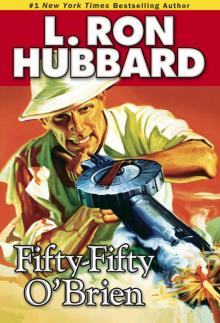 Fifty-Fifty O'Brien
Fifty-Fifty O'Brien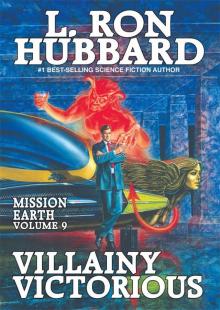 Villainy Victorious
Villainy Victorious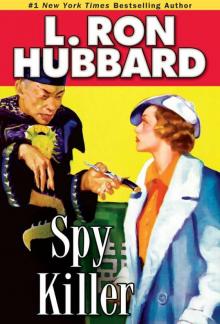 Spy Killer
Spy Killer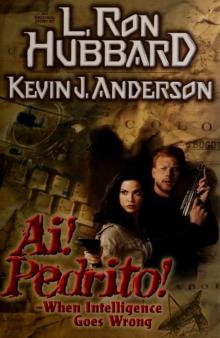 Ai! Pedrito!: When Intelligence Goes Wrong
Ai! Pedrito!: When Intelligence Goes Wrong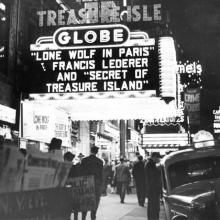 The Dangerous Dimension
The Dangerous Dimension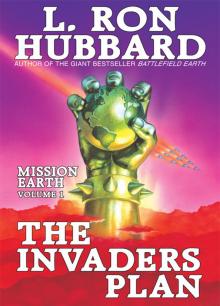 Mission Earth Volume 1: The Invaders Plan
Mission Earth Volume 1: The Invaders Plan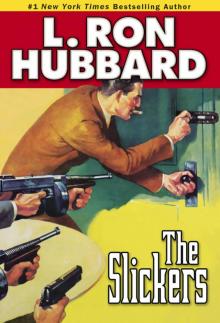 The Slickers
The Slickers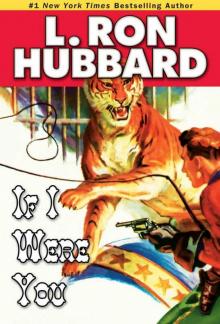 If I Were You
If I Were You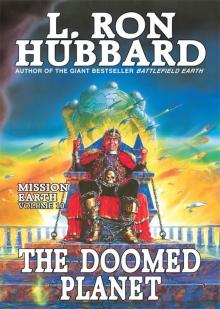 The Doomed Planet
The Doomed Planet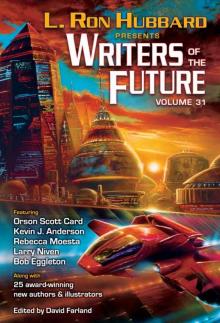 Writers of the Future Volume 31
Writers of the Future Volume 31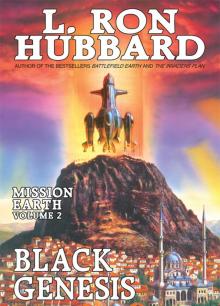 Mission Earth Volume 2: Black Genesis
Mission Earth Volume 2: Black Genesis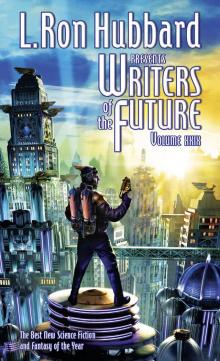 Writers of the Future: 29
Writers of the Future: 29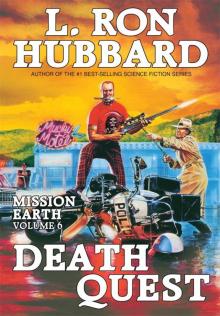 Death Quest
Death Quest The Enemy Within
The Enemy Within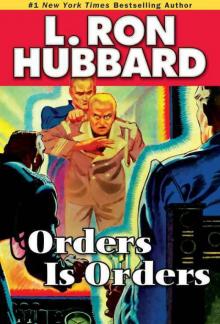 Orders Is Orders
Orders Is Orders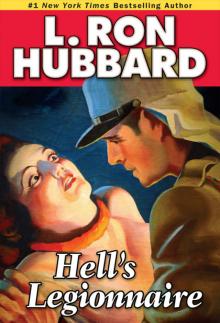 Hell's Legionnaire
Hell's Legionnaire L. Ron Hubbard Presents Writers of the Future 34
L. Ron Hubbard Presents Writers of the Future 34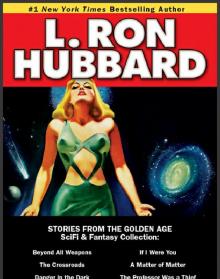 The Scifi & Fantasy Collection
The Scifi & Fantasy Collection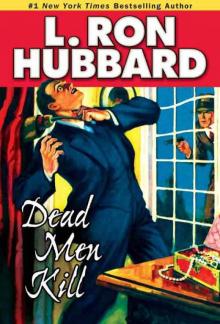 Dead Men Kill
Dead Men Kill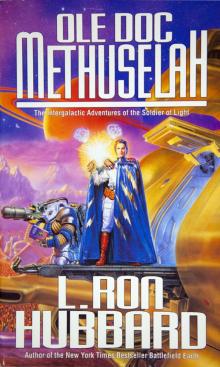 Ole Doc Methuselah: The Intergalactic Adventures of the Soldier of Light
Ole Doc Methuselah: The Intergalactic Adventures of the Soldier of Light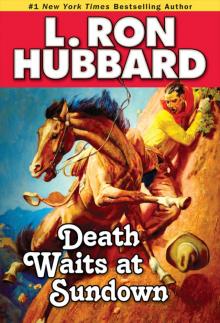 Shadows From Boot Hill
Shadows From Boot Hill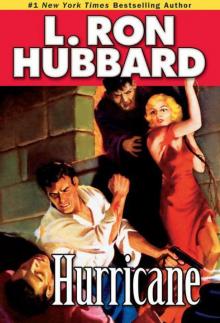 Hurricane
Hurricane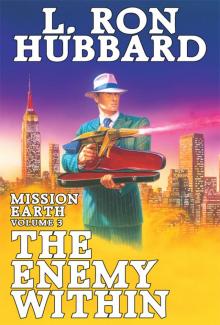 Mission Earth Volume 3: The Enemy Within
Mission Earth Volume 3: The Enemy Within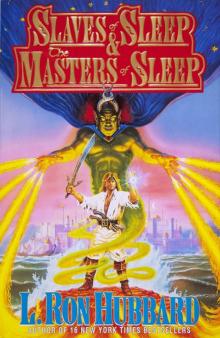 Slaves of Sleep & the Masters of Sleep
Slaves of Sleep & the Masters of Sleep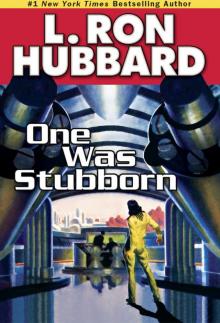 One Was Stubborn
One Was Stubborn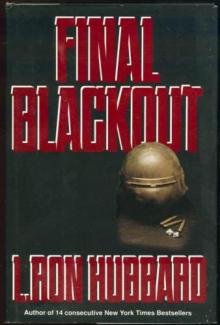 Final Blackout: A Futuristic War Novel
Final Blackout: A Futuristic War Novel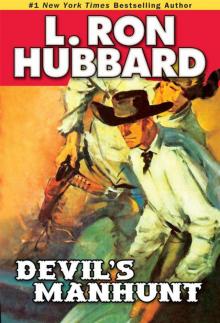 Devil's Manhunt
Devil's Manhunt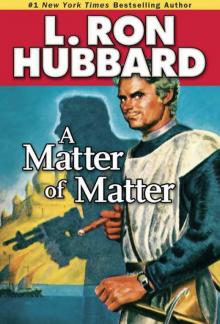 A Matter of Matter
A Matter of Matter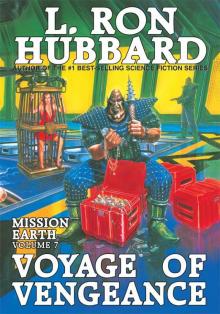 Voyage of Vengeance
Voyage of Vengeance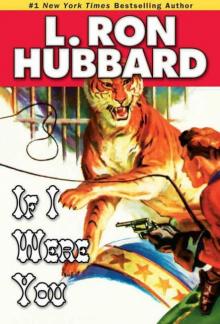 If I Were You (Science Fiction & Fantasy Short Stories Collection)
If I Were You (Science Fiction & Fantasy Short Stories Collection)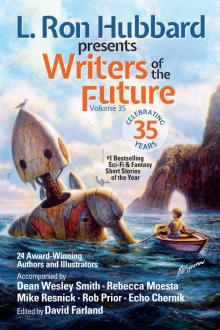 L. Ron Hubbard Presents Writers of the Future Volume 35
L. Ron Hubbard Presents Writers of the Future Volume 35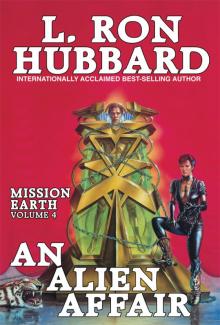 Mission Earth Volume 4: An Alien Affair
Mission Earth Volume 4: An Alien Affair Black Genesis
Black Genesis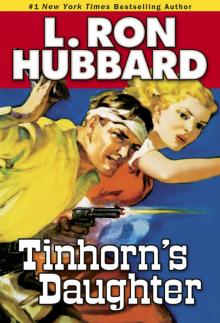 Tinhorn's Daughter
Tinhorn's Daughter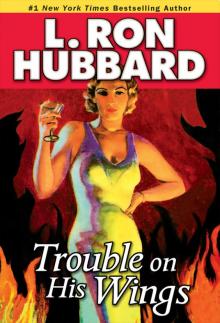 Trouble on His Wings
Trouble on His Wings Writers of the Future Volume 27: The Best New Science Fiction and Fantasy of the Year
Writers of the Future Volume 27: The Best New Science Fiction and Fantasy of the Year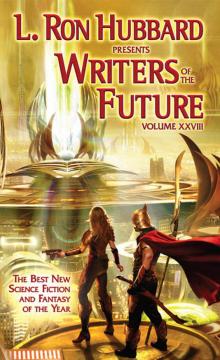 Writers of the Future Volume 28: The Best New Science Fiction and Fantasy of the Year
Writers of the Future Volume 28: The Best New Science Fiction and Fantasy of the Year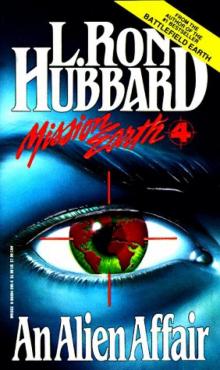 An Alien Affair
An Alien Affair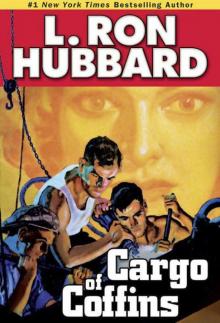 Cargo of Coffins
Cargo of Coffins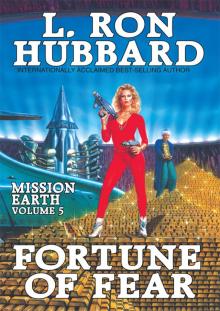 Mission Earth Volume 5: Fortune of Fear
Mission Earth Volume 5: Fortune of Fear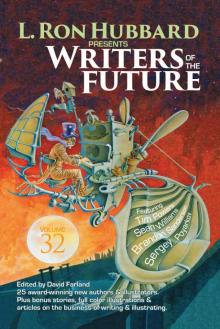 Writers of the Future 32 Science Fiction & Fantasy Anthology
Writers of the Future 32 Science Fiction & Fantasy Anthology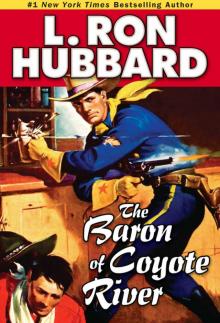 The Baron of Coyote River
The Baron of Coyote River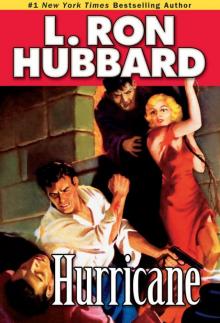 Hurricane (Stories From the Golden Age)
Hurricane (Stories From the Golden Age)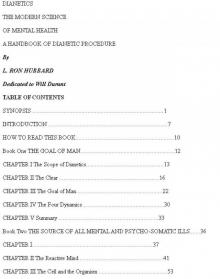 Dianetics: The Modern Science of Mental Health
Dianetics: The Modern Science of Mental Health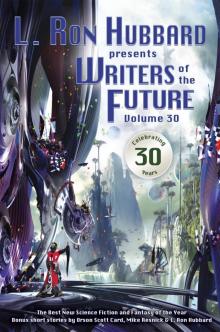 Writers of the Future, Volume 30
Writers of the Future, Volume 30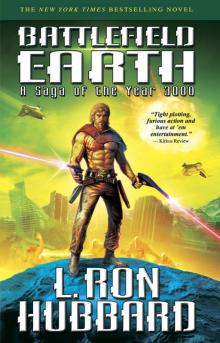 Battlefield Earth: A Saga of the Year 3000
Battlefield Earth: A Saga of the Year 3000 Fear
Fear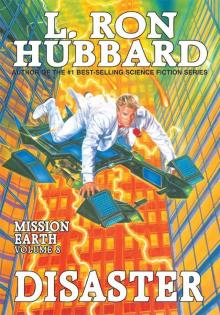 Disaster
Disaster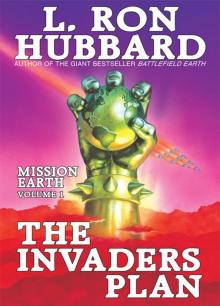 Invaders Plan, The: Mission Earth Volume 1
Invaders Plan, The: Mission Earth Volume 1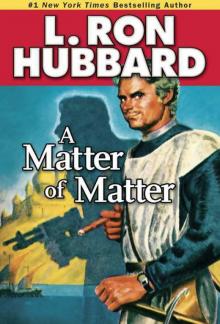 A Matter of Matter (Stories from the Golden Age)
A Matter of Matter (Stories from the Golden Age) Writers of the Future Volume 34
Writers of the Future Volume 34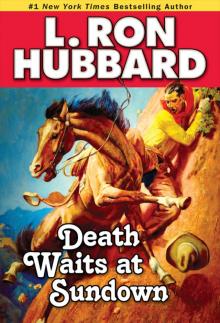 Death Waits at Sundown
Death Waits at Sundown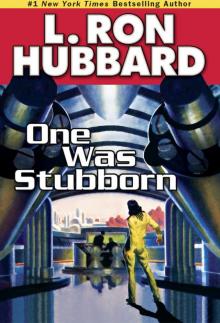 One Was Stubbron
One Was Stubbron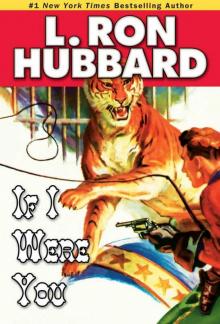 If I Were You (Stories from the Golden Age)
If I Were You (Stories from the Golden Age)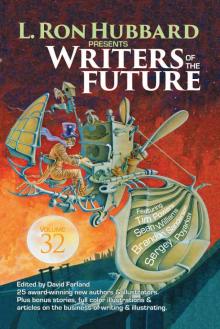 Writers of the Future 32 Science Fiction & Fantasy Anthology (L. Ron Hubbard Presents Writers of the Future)
Writers of the Future 32 Science Fiction & Fantasy Anthology (L. Ron Hubbard Presents Writers of the Future)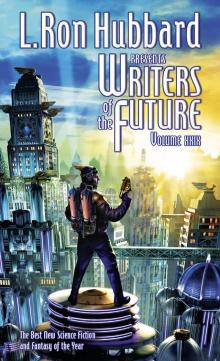 Writers of the Future, Volume 29
Writers of the Future, Volume 29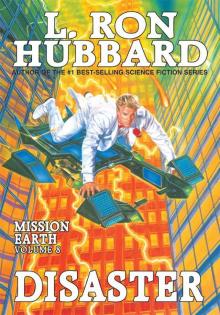 Mission Earth Volume 8: Disaster
Mission Earth Volume 8: Disaster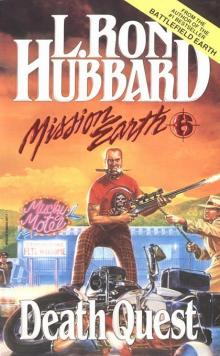 Mission Earth 6: Death Quest
Mission Earth 6: Death Quest Writers of the Future, Volume 27
Writers of the Future, Volume 27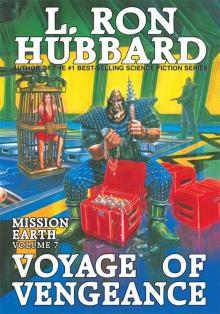 Mission Earth Volume 7: Voyage of Vengeance
Mission Earth Volume 7: Voyage of Vengeance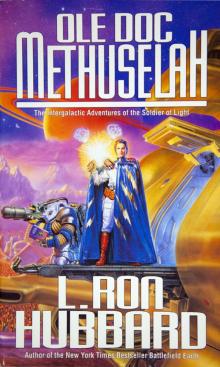 Ole Doc Methuselah
Ole Doc Methuselah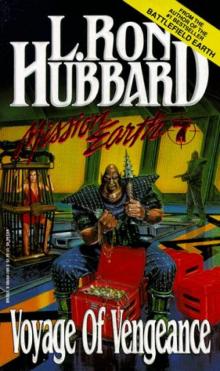 Mission Earth 07: Voyage of Vengeance
Mission Earth 07: Voyage of Vengeance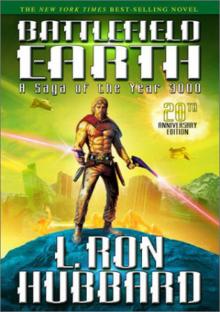 Battlefield Earth
Battlefield Earth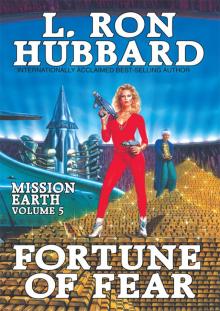 Fortune of Fear
Fortune of Fear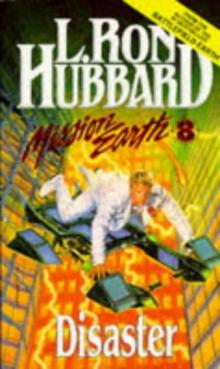 Mission Earth 8: Disaster
Mission Earth 8: Disaster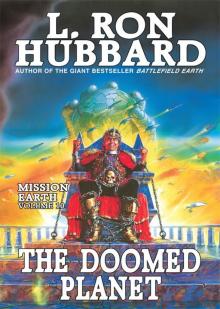 Mission Earth Volume 10: The Doomed Planet
Mission Earth Volume 10: The Doomed Planet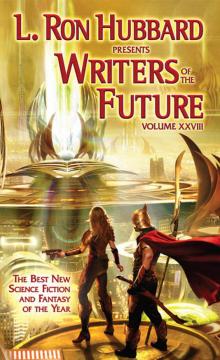 Writers of the Future, Volume 28
Writers of the Future, Volume 28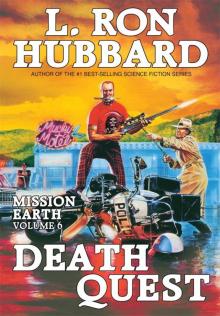 Mission Earth Volume 6: Death Quest
Mission Earth Volume 6: Death Quest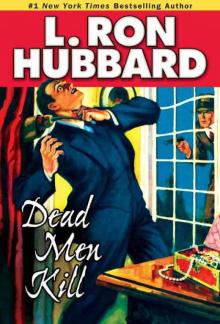 Dead Men Kill (Stories from the Golden Age)
Dead Men Kill (Stories from the Golden Age)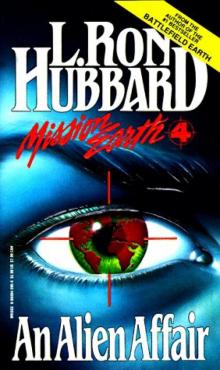 Mission Earth 4: An Alien Affair
Mission Earth 4: An Alien Affair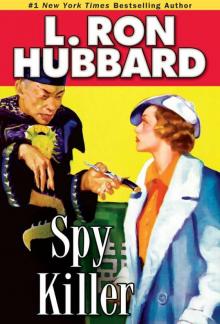 Spy Killer (Stories from the Golden Age)
Spy Killer (Stories from the Golden Age)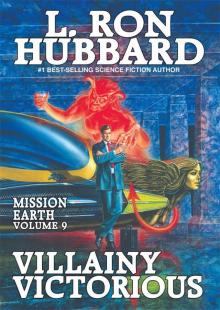 Mission Earth Volume 9: Villainy Victorious
Mission Earth Volume 9: Villainy Victorious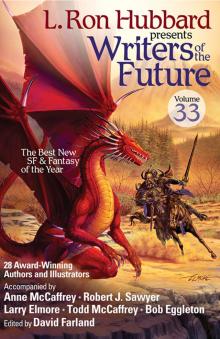 L. Ron Hubbard Presents Writers of the Future, Volume 33
L. Ron Hubbard Presents Writers of the Future, Volume 33